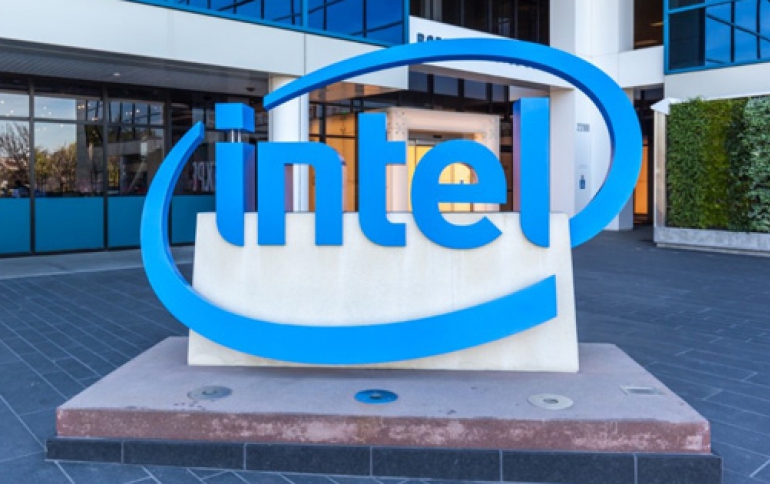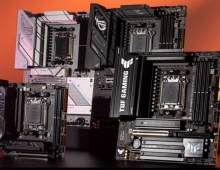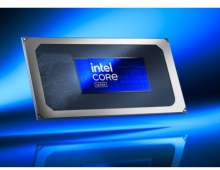
Intel Core X-series 14- to 18-Core Processors Available Starting in September, New SSDs On the Way
Today, Intel is releasing the specifications for the 12- to 18-core processors: Intel Core i9-7920X, Intel Core i9-7940X, Intel Core i9-7960X and the Extreme Edition Intel Core i9-7980XE processors.
Announced at Computex 2017, the Intel Core X-series processor family is a powerful and scalable high-end desktop platform designed to deliver the performance needed to meet extreme computing demands for virtual reality (VR), content creation, gaming and overclocking.
The new X-series processor family supports simultaneous, compute-intensive, multithreaded workloads aligned in purpose, powered by up to 18 cores and 36 threads. And, with up to 68 PCIe 3.0 lanes on the platform, people have the ability to expand their systems with fast SSDs, up to four discrete GFX cards and ultrafast Thunderbolt 3 solutions.
Content creators can expect up to 20 percent better performance for VR content creation and up to 30 percent faster 4K video editing over the previous generation, according to Intel.
Both the new HCC-based processors and the recently released LCC-based processors will share the same LGA2066 socket as used on X299 motherboards, and all the processors will differ in core count, with slight variations on core frequencies, TDP and price.
The higher-end CPUs get a kick up in TDP to 165W to account for more cores and the frequency that these CPUs are running at. The top Core i9-7980XE SKU will have a base frequency of 2.6 GHz but a turbo of 4.2 GHz, and a Favored Core of 4.4 GHz. I suspect the turbo will be limited to 2-4 cores of load, however Intel has not listed the 'all-core turbo' frequencies which are often above the base frequencies, nor the AVX frequencies here.
The 12-core Intel Core X-series processor will be available starting on Aug. 28, and 14- to 18-core Intel Core X-series processors will be available starting Sept. 25. The 4- to 10-core Intel Core X-series processors are already on shelves and available at multiple retailers, along with more than 200 Intel X299 Chipset motherboards.
New SSD Form Factor Designs
Intel also today announced data center storage advances. The new technologies include:
- "Ruler" form factor for Intel SSDs, a new solid state drive form factor enabling up to 1PB of storage in a 1U server rack in the future.
- Intel Optane technology dual port SSDs and Intel 3D NAND dual port SSDs for mission-critical applications.
- An updated SATA family of SSDs for data center, targeted at HDD replacement.
The new "ruler" form factor, so-called for its long, skinny shape, shifts storage from the legacy 2.5-inch and 3.5-inch form factors that follow traditional hard disk drives, and the add-in card form factor, which takes advantage of PCIe card slots, and delivers on the promise of non-volatile storage technologies to eliminate constraints on shape and size. The new form factor delivers the most storage capacity for a server, with the lowest required cooling and power needs. The next-generation "ruler" form factor SSDs using Intel 3D NAND technology will enable up to 1PB in a 1U server. Both Intel Optane SSDs and Intel 3D NAND SSDs in the "ruler" form factor will come to market in the near future.
Dual port Intel Optane SSDs and Intel 3D NAND SSDs offer critical redundancy and failover, protecting against multiple paths to failure for mission-critical applications. Dual port SSDs replace SAS SSDs and HDDs and, with new storage technologies, deliver more IOPS, more bandwidth and lower latency than SAS SSDs. Dual port Intel SSD DC D4500, D4501 and D4600 Series are available today, and dual port Intel Optane SSDs are shipping for validation now, with broader availability in the fourth quarter.
The Intel SSD DC S4500 and S4600 Series combine a new Intel-developed SATA controller, SATA firmware and high density 32-layer 3D NAND. These storage-inspired SSDs ensure a simple transition from hard disk drives to SSDs, while enabling data centers to reduce storage cost. The new members of the second-generation Intel 3D NAND SSD family are available now.






















